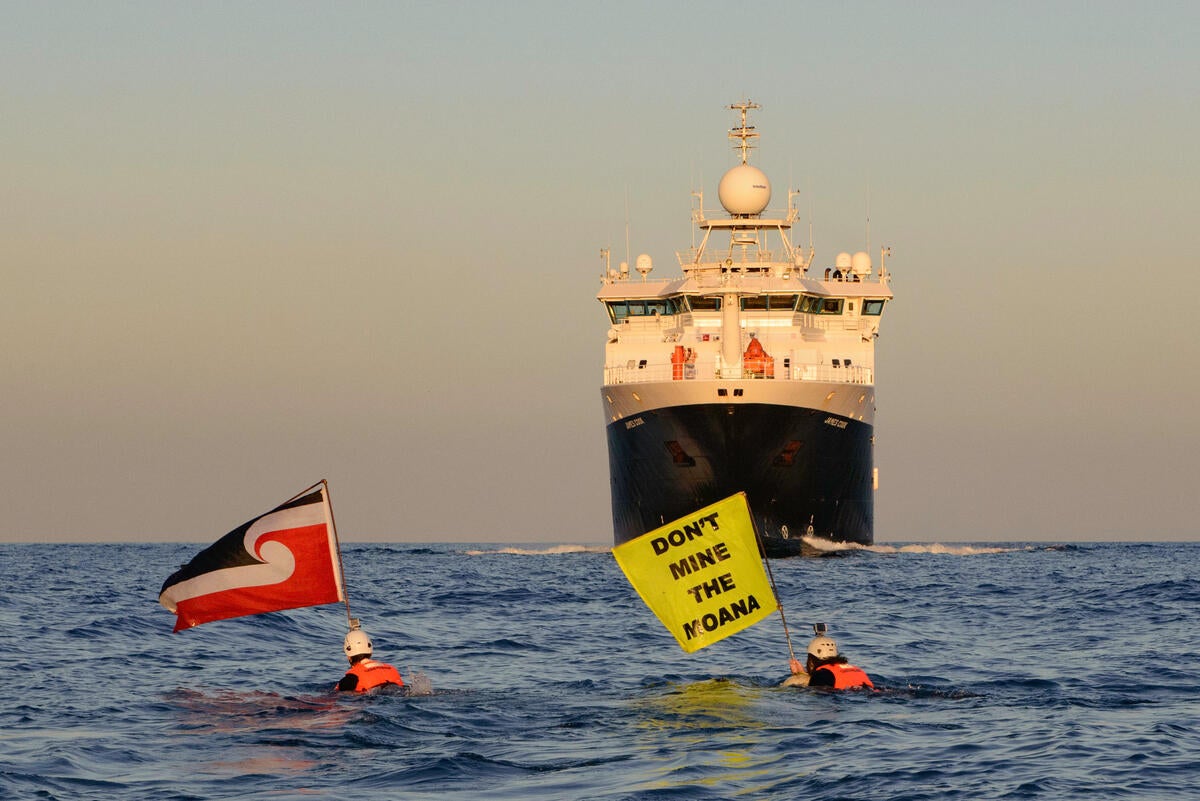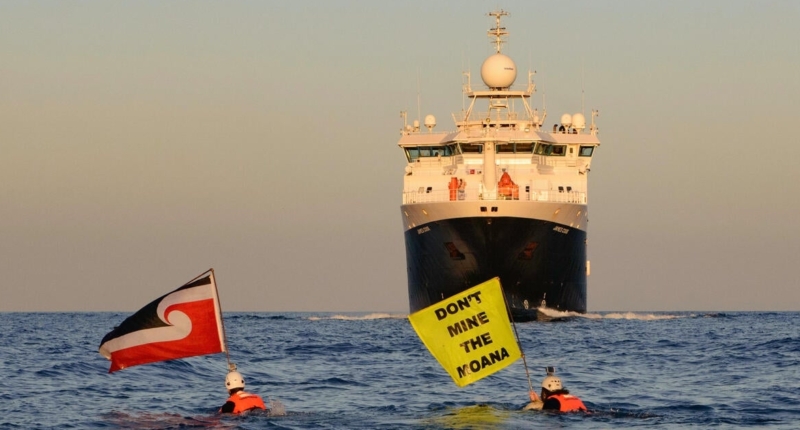Māori Greenpeace activists have protested against deep-sea mining in the East Pacific by swimming in front of a deep-sea mining research vessel, the RSS James Cook, on Monday. The ship was operated by the UK’s Natural Environment Research Council and was returning from a seven-week expedition of the Pacific Ocean targeting deep-sea mining research. The activists held banners reading “don’t mine the Moana” while floating in front of the ship. Greenpeace has requested findings from the RSS James Cook expedition, which is partly funded by the government. The protest comes during a pivotal two-week meeting at the 28th International Seabed Authority in Jamaica, where world governments will agree on global plans and legislation regarding deep-sea mining. Despite a landmark decision in October by New Zealand’s Supreme Court to block consent for seabed mining off the coast of South Taranaki, Māori activists still feel that their voices are not being heard in matters that affect their territories and waters.
Māori Greenpeace activists block UK-funded deep-sea mining research vessel in New Zealand

Māori activists from the environmental group Greenpeace protested against deep-sea mining in the East Pacific by swimming in front of a deep-sea mining research vessel, the RSS James Cook, on Monday. The ship, operated by the UK’s Natural Environment Research Council, was returning from a seven-week expedition of the Pacific Ocean targeting deep-sea mining research.
The Māori activists held banners reading “don’t mine the Moana” while floating in front of the ship. “Moana” is the Māori word for ocean. One activist said, “This kaupapa is so much more than me. It is the future of the moana and has the opportunity to destroy our oceans until the end of humankind. Our intention was to show that we are watching, and this isn’t okay. We must not let mining start in the Pacific.”
Greenpeace has requested findings from the RSS James Cook expedition, which is partly funded by the government. The protest comes during a pivotal two-week meeting at the 28th International Seabed Authority in Jamaica, where world governments will agree on global plans and legislation regarding deep-sea mining.
Despite a landmark decision in October by New Zealand’s Supreme Court to block consent for seabed mining off the coast of South Taranaki, Māori activists still feel that their voices are not being heard in matters that affect their territories and waters. “For too long, Pacific peoples have been excluded from decisions that impact our territories and waters. If governments don’t stop this industry from starting, a new cycle of colonial exploitation will begin. We reject a future with deep-sea mining,” said James Hita, a Greenpeace Aotearoa campaigner.
The Māori activists are also using their own cultural symbols to make their message clear. One activist proudly brought “tūpuna” (ancestors) and “rangatahi” (young people) Māori with her through the flying of the Tino Rangatiratanga flag. Tino rangatiratanga is a Māori term rooted in the peoples’ worldviews, which can mean self-determination, sovereignty, independence, and autonomy.
This protest shows that despite efforts to stop deep-sea mining in certain areas, environmental activists still feel that there is much to be done to protect the ocean and its resources.
Don’t miss interesting posts on Famousbio

